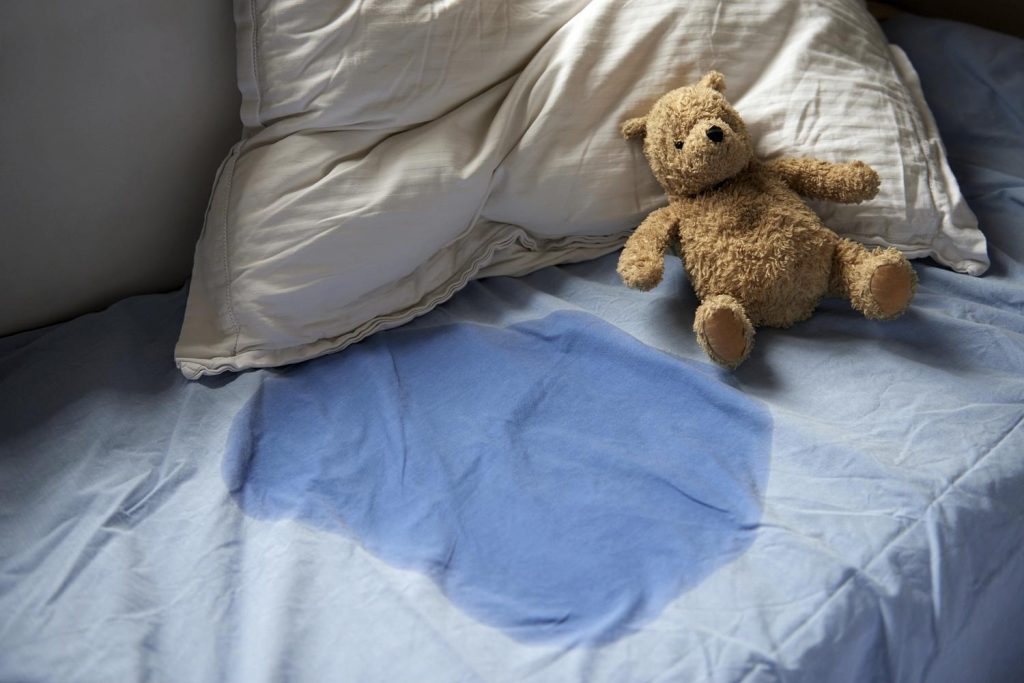
Your Child Will Stop Bed Wetting If You Faithfully Follow These 6 Tips
- Bisola
- August 22, 2020
- Health
- How To Help Your Child Stop Bedwetting, How To Help Your Child Stop Wetting The Bed, How to Stop Bedwetting, Remedies for Stopping Bedwetting, Tips For Parents With Bedwetting Children, Tips to Stop Bed wetting
- 0 Comments

Bedwetting called “Nocturnal enuresis” in medical sciences is a condition, when a person, especially a kid, passes out urine, unconsciously while sleeping.
Many children wet the bed until they are 5 years old, or even older. In most cases, the cause is physical and not the child’s fault. The child’s bladder might be too small. Or the amount of urine produced overnight is too much for the bladder to hold. As a result, the bladder fills up before the night is over. Some children sleep too deeply or take longer to learn bladder control.
If your kid continues to wet his/her bed even after attaining the age of more than 7 years, it’s important to know the possible cause and get rid of this problem.
1. Limit Fluid Intake A Few Hours Before Bedtime
Doctors recommend limiting fluids post-dinner. In fact, some even prescribe consuming the majority of the fluids during the day, with only about a fifth reserved for the evening.
It’s also important to keep an eye out on the amount of fluid your child is consuming – drinking too little or too much can contribute to bed-wetting. Where possible, steer clear of caffeinated drinks like hot chocolate, coffee, tea or cola as they can increase the likelihood of urinating at night.
2. Encourage Bathroom Trips Before Their Bedtime
Most healthy children go to the toilet anywhere between four to seven times during a day. Motivate your child to urinate regularly throughout the day.
Make sure your child goes to the bathroom before her bedtime, but also try carrying her to the bathroom again right before you go to bed. When your child empties her bladder, there’s less of a chance she’ll have to urinate during the night. This technique won’t “cure” bedwetting, so to speak, but it can be an effective way to keep the bed dry through the night.

3. Add Motivational Schemes
It’s more important not to punish the child if he or she wets the bed. Remember, it’s not something your child can control. Many parents find rewarding children helps in managing bed-wetting. Motivating a child can add to the effectiveness of treatment. Celebrating small victories adds to the sense of accomplishment.
4. See A Doctor
If your child is 7 years old or older and wets the bed more than two or three times in a week, a doctor may be able to help. If both day and night wetting occur after age 5, your child should see a doctor before age 7. Your child will likely be asked for a urine sample. The doctor uses the sample to look for signs of infection. By testing the reflexes in the child’s legs and feet, the doctor can check for nerve damage. Sometimes bedwetting is a sign of diabetes, a condition that can cause frequent urination.
5. Have Your Child Practice Bladder Training
Bladder training can help your child hold urine longer. Write down what times your child urinates during the day. Then figure out the amount of time between trips to the bathroom. After a day or two, have your child try to wait an extra 15 minutes before using the bathroom. For example, if a trip to the bathroom usually occurs at 3:30 p.m., have your child wait until 3:45 p.m. Slowly make the wait time longer and longer. This method helps stretch your child’s bladder to hold more urine. Be patient. Bladder training can take several weeks or even months.
6. Use A Bed Wetting Alarm
A small moisture alarm can be put in the child’s bed or underwear. The alarm triggers a bell or buzzer with the first drops of urine. The sound wakes the child. Your child can then stop the flow of urine, get up, and use the bathroom. Waking also teaches the child how a full bladder feels. After weeks of hearing the alarm, the child’s brain learns to pay attention to the full bladder signals and he wakes up before wetting the bed.






